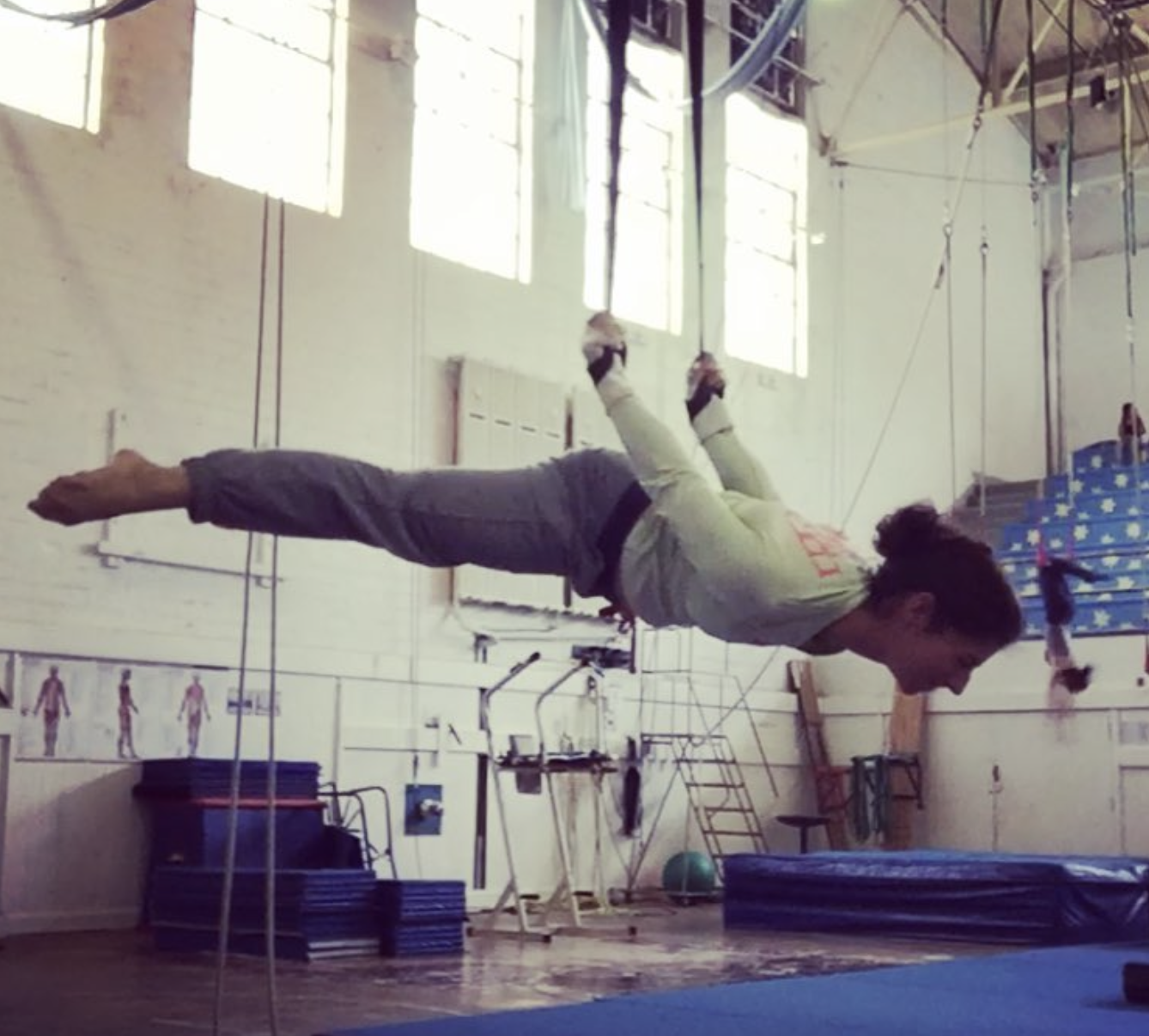An only-partly-selfish argument for Apple Watch to have 'ankle mode'
tech accessibility circusToday, I posted on Mastodon about how I often do my aerial training with my Apple Watch on my ankle rather than my wrist because it’s dangerous for me to have the watch on my wrist while I work in the air. Of course, this mode of use is not officially supported by Apple, but it works well enough for my purposes. (The Apple Watch, as we all know, is full of sensors, all of which have likely been very specifically calibrated for wrist-only wear.) I was surprised to see lots of responses to my post from folks essentially saying “I do that too” or “I know people who want to do that.”
This got me thinking that there are actually many very good reasons why supporting an “ankle mode” for Apple Watch would be awesome. Since I don’t work at Apple anymore, I can’t just “file a radar,” so instead I’m writing a blog post (and, before you @ me, yes I’m duplicating it in a Feedback).
So, why should (in my personal opinion) Apple Watch officially support being worn on the ankle?
My selfish reason: not all activities allow for wrist-wear
As I mention in my post, when I’m training rope, it’s risky for me to have anything on my wrist. I’ve trained with my watch on in the past and, once, it ended with me getting my pinky finger from the opposite hand caught under the band while trying to catch the rope and falling a good 10 feet. Needless to say, most aerial schools and coaches do not allow students to train with watches (and most students don’t want to after one such accident.)
Additionally, some aerial apparatuses like straps, pictured below, wrap directly around the wrists, making a watch a non-option.

“But, wait, Sommer,” you say, “I’ve seen some circus in my day; sometimes they hang from their ankles!” Yes, yes we do; it’s not a perfect solution, and it certainly wouldn’t work for someone doing doubles and catching people by their ankles. At some point, you just cannot wear ANY gear for some activities, that’s true. But for the casual aerialist, official ankle support would go a long way!
Sometimes your arms aren’t moving but you’re active
A lot of the responses to my post on Mastodon noted something I hadn’t even thought about: treadmill desks. When on a treadmill desk, your legs are walking but often your upper body is quite still, hands typing away on the keyboard. Folks noted that their watches didn’t get a good read for their steps/activity when they were walking if they wore their watch on their wrists, but they got much better results when they moved their watch to their ankles. Very cool! As we all try to find ways to be more active at our desk jobs, ankle support for watch could be a great option for those using walking pads and treadmill desks in work-from-home situations, which have only increased in the advent of the 2020 pandemic.
By far, the best reason: Accessibility
I hadn’t thought about this one for a long time, but again, someone in my Mastodon thread did mention it. Of course, ankle support for Apple watch would be fantastic for some accessibility concerns around physical disability. For someone with limb differences, the feet might be the primary mode of interacting with technology and ankle wear may be preferred. While the Apple Watch does now support a one-handed gesture mode, this might not suit everyone. Interacting by hand with a device worn on the ankle could be preferred for some.
As is often true, accessibility is about meeting users where they are, and it would be wonderful to see the Apple Watch take its next step in doing just that!
Full circle
The whole reason I wrote this post is that it reminded me how, so often, accessibility ends up making things better for everyone. Often, the thought process flows in the other direction: an accessibility feature ends up finding new homes in people’s lives for various reasons well past its original intention. (The classic example on iPhone: how AssistiveTouch is often used when a home-button device has a broken home button.)
This time, thanks to the great community on Mastodon, it went from my selfish thought as an aerialist to a realization that ankle-wear for Apple Watch would actually serve a lot of people in really cool and accessible ways. In fact, beyond ankle wear, now that the Apple Watch supports interaction via iPhone (Apple Watch Mirroring in Settings -> Accessibility), the watch could really be worn anywhere.